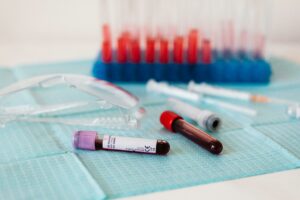Learn the 7 Common Types of Depression

When most people think of depression, they divide it into two categories: clinical depression, which requires treatment, and “normal” depression, which almost anybody can experience. Depression can be a tough concept to grasp as an illness because we refer to it as both a symptom of a condition and a condition in and of itself.

What Exactly Is Depression?
Depression is described medically as a mood condition that causes a continuous feeling of melancholy or depression, as well as a significant loss of interest in activities that normally offer you joy.
Depression affects how you feel, think, and conduct, and it can impair your capacity to function and go about your daily life. There are numerous reasons of depression, some of which we do not fully comprehend. The following are seven of the more frequent kinds of depression.
Major Depressive Syndrome (MDD)
When people talk of clinical depression, they usually mean major depressive disorder (MDD). Major depressive disorder is a mood disorder distinguished by several fundamental characteristics:
- Depressed mood
- Lack of interest in typically appreciated activities
- Weight changes
- Sleep changes
- Fatigue
- Feelings of worthlessness and guilt
- Difficulty concentrating
- Suicidal thoughts
If a person has the majority of these symptoms for more than two weeks, they are likely to be diagnosed with MDD.
Persistent Depressive Disorder (PDD)
Dysthymia, also known as persistent depressive disorder, is a type of chronic depression that lasts for at least two years. It can range from mild to severe. People may have brief moments of not feeling depressed, but this respite only lasts two months or less. While the symptoms are not as severe as those of major depression, they are widespread and long-lasting.
- Sadness
- Loss of interest and pleasure
- Anger and irritability
- Guilt
- Low self-esteem
- Difficulty falling or keeping asleep Sleeping excessively
- Feelings of hopelessness
- Fatigue and lack of energy
- Changes in appetite
- Trouble concentrating
Medication and psychotherapy are frequently used to treat persistent depressive illness. According to the National Institute of Mental Health, 1.5% of individuals in the United States experienced chronic depression in the previous year. The condition affects women (1.9%) more than males (1%), and experts predict that 1.3% of all adults in the United States will have it at some point in their lives.


